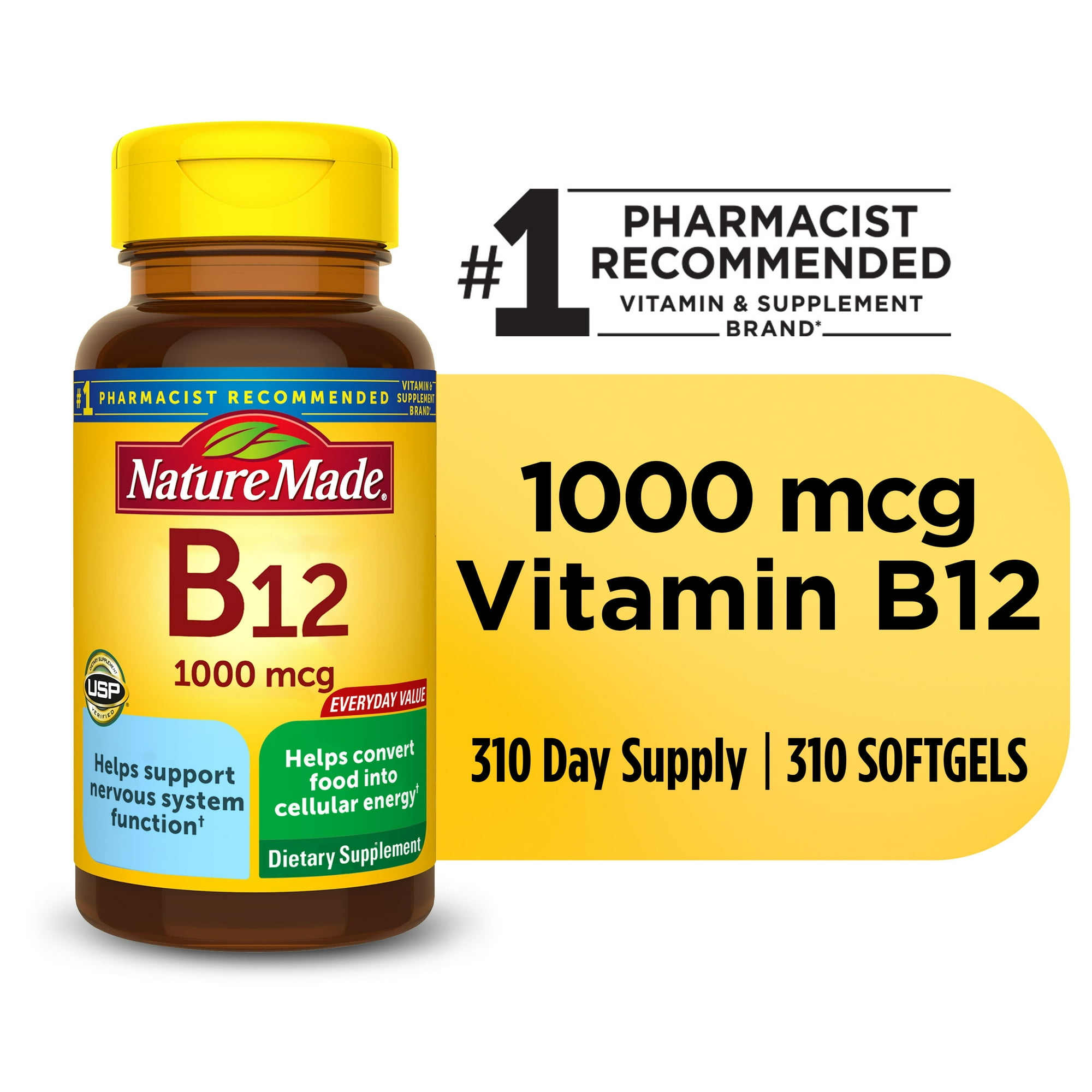What are the symptoms of a vitamin B12 deficiency?
Vitamin B12 deficiency can lead to a range of symptoms affecting various systems in the body. Common symptoms include:
- Fatigue and Weakness: Feeling unusually tired or weak.
- Pale or Jaundiced Skin: A pale complexion or yellowing of the skin and eyes.
- Shortness of Breath and Dizziness: Difficulty breathing and feeling lightheaded.
- Numbness or Tingling: Especially in the hands and feet (peripheral neuropathy).
- Difficulty Walking: Unsteady gait, balance problems, or difficulty with coordination.
- Mental Changes: Memory loss, difficulty concentrating, mood changes, or confusion.
- Glossitis and Mouth Ulcers: Inflammation of the tongue and sores in the mouth.
- Visual Disturbances: Blurred vision or changes in vision due to nerve damage.
- Psychiatric Symptoms: Depression, irritability, or personality changes.
- Anemia: Low red blood cell count, which can lead to symptoms like fatigue and shortness of breath.
These symptoms can develop gradually and may be subtle initially. If you suspect a vitamin B12 deficiency, it is important to consult a healthcare professional for proper diagnosis and treatment.
What are the causes of a vitamin B12 deficiency?
Vitamin B12 deficiency can be caused by various factors, including:
- Inadequate Dietary Intake: Primarily a concern for individuals following a strict vegetarian or vegan diet, as vitamin B12 is found mainly in animal products such as meat, fish, eggs, and dairy.
- Malabsorption Disorders: Conditions that affect the absorption of vitamin B12 in the gut, such as:
- Pernicious Anemia: An autoimmune condition that destroys cells in the stomach responsible for producing intrinsic factor, a protein necessary for vitamin B12 absorption.
- Celiac Disease: An autoimmune disorder that damages the small intestine and impairs nutrient absorption.
- Crohn’s Disease: A type of inflammatory bowel disease that can affect the part of the intestine responsible for vitamin B12 absorption.
- Atrophic Gastritis: A condition where the stomach lining is damaged, affecting vitamin B12 absorption.
- Surgical Removal of Parts of the Stomach or Small Intestine: Surgeries that remove parts of the digestive tract can impair vitamin B12 absorption.
- Medications: Certain medications can affect vitamin B12 absorption, such as:
- Proton Pump Inhibitors (PPIs): Reduce stomach acid, which is needed for releasing vitamin B12 from food.
- Metformin: A common medication for type 2 diabetes that can impair vitamin B12 absorption.
- Alcoholism: Chronic alcohol consumption can damage the digestive tract and impair vitamin B12 absorption.
- Aging: Older adults may experience decreased stomach acid production, which can affect vitamin B12 absorption from food.
- Genetic Factors: Rare genetic conditions, such as congenital deficiency of intrinsic factor or defects in vitamin B12 transport, can cause deficiency.
If you suspect a vitamin B12 deficiency, it’s important to consult a healthcare professional for a proper diagnosis and treatment plan.
What is the treatment for vitamin B12 deficiency?
Treatment for vitamin B12 deficiency typically involves:
- Dietary Adjustments: Incorporating more vitamin B12-rich foods into the diet, such as meat, fish, eggs, dairy products, and fortified foods, can help those with mild deficiencies or dietary-related causes.
- Oral Supplements: For many people with vitamin B12 deficiency, oral supplements in the form of tablets or capsules are effective. These supplements are available over-the-counter or by prescription and can be used to boost vitamin B12 levels.
- Sublingual Supplements: These are vitamin B12 supplements that dissolve under the tongue, which some people find more effective than oral tablets.
- Intramuscular Injections: In cases of severe deficiency, malabsorption issues, or when oral supplements are not effective, vitamin B12 injections may be necessary. These are usually administered in the muscle and provide a direct and rapid increase in vitamin B12 levels.
- Nasal Sprays: Vitamin B12 nasal sprays are an alternative for those who cannot take oral supplements or injections. They can be used to increase vitamin B12 levels.
- Treatment of Underlying Conditions: For deficiencies caused by conditions such as pernicious anemia, Crohn’s disease, or celiac disease, treating the underlying condition is crucial. This might include medications, lifestyle changes, or managing the primary disease to improve vitamin B12 absorption.
- Monitoring and Follow-Up: Regular monitoring of vitamin B12 levels is important to ensure that treatment is effective and to adjust dosages or methods if necessary. Follow-up appointments with a healthcare provider help track progress and address any ongoing issues.
The specific treatment plan will depend on the severity of the deficiency, its cause, and the patient’s overall health. It’s essential to consult with a healthcare provider for a personalized treatment approach.

Leave a Reply
You must be logged in to post a comment.